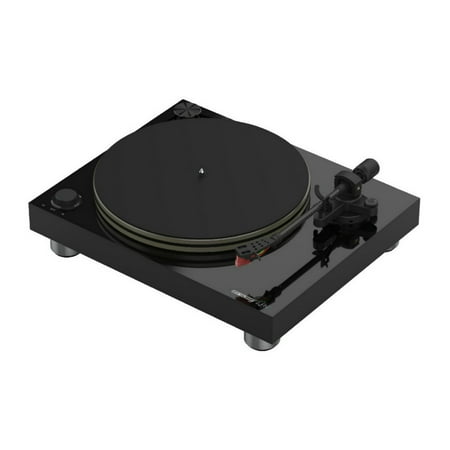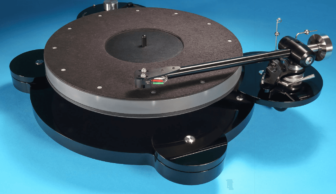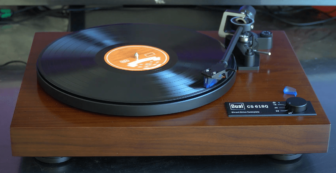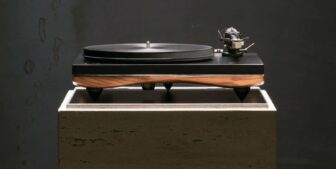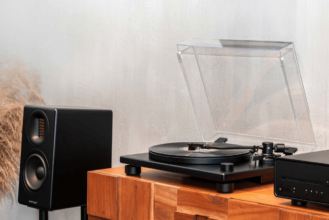Reloop Turn 7 Turntable Review
It couldn’t be easier to get into vinyl: Offer a beautifully designed turntable with a built-in phono preamp and add an irresistible accessory package around it. Not a complicated matter. Unless you’re an audiophile.
An audiophile would tell you that a turntable is a highly complex device. A technical marvel. Just below moon rockets, artificial intelligence, and the development of apps for nuclear fusion. They would whisper intensely that turntables are an extremely delicate piece of high-tech, requiring deep knowledge, the help of specialists, and a set of precision tools like electronic scales with accuracies to the hundredth of a gram.
And anyway, according to the audiophile, investments of (at least!) several thousand dollars are necessary to even begin to enter a sound nirvana, one that non-owners of high-end “turntables” could only dream of. Not to mention the seventh heaven that would open up if you also bought a “reasonably decent” cartridge for no more than $2,000…
If you’re now shocked and decide to steer clear of the matter and rather buy a bicycle instead of asking for membership in this elite club, no one can blame you. And once again, a wonderful thing has been done a disservice. Our advice: just don’t listen to the chatter!
Playing records has been anything but rocket science since the days of the gramophone. Sure, you can push things to the limit in many ways, but the principle remains the same. And the technical development, especially in the last 30 to 40 years, has greatly favored turntables. A reasonably priced turntable today is far better than a budget one from, say, 1980. And even an absolute budget solution, essentially a board with a platter and a plastic tonearm, can provide listening pleasure. And the records? You can find them starting at $1 at the flea market. And today, right now, records are nothing less than a cult, streaming or not.
Among professionals in the DJ and pro audio world, turntables have always been present. Reloop, a manufacturer with 20 years of experience in turntables, has also brought its expertise into its own HiFi department: “Reloop HiFi” offers turntables optimized for audio enthusiasts, characterized by full features and simplicity. And our test model, the Turn 7, even offers a belt drive – which is, of course, almost unthinkable for professionals, but for HiFi fans, it’s an audiophile standard.
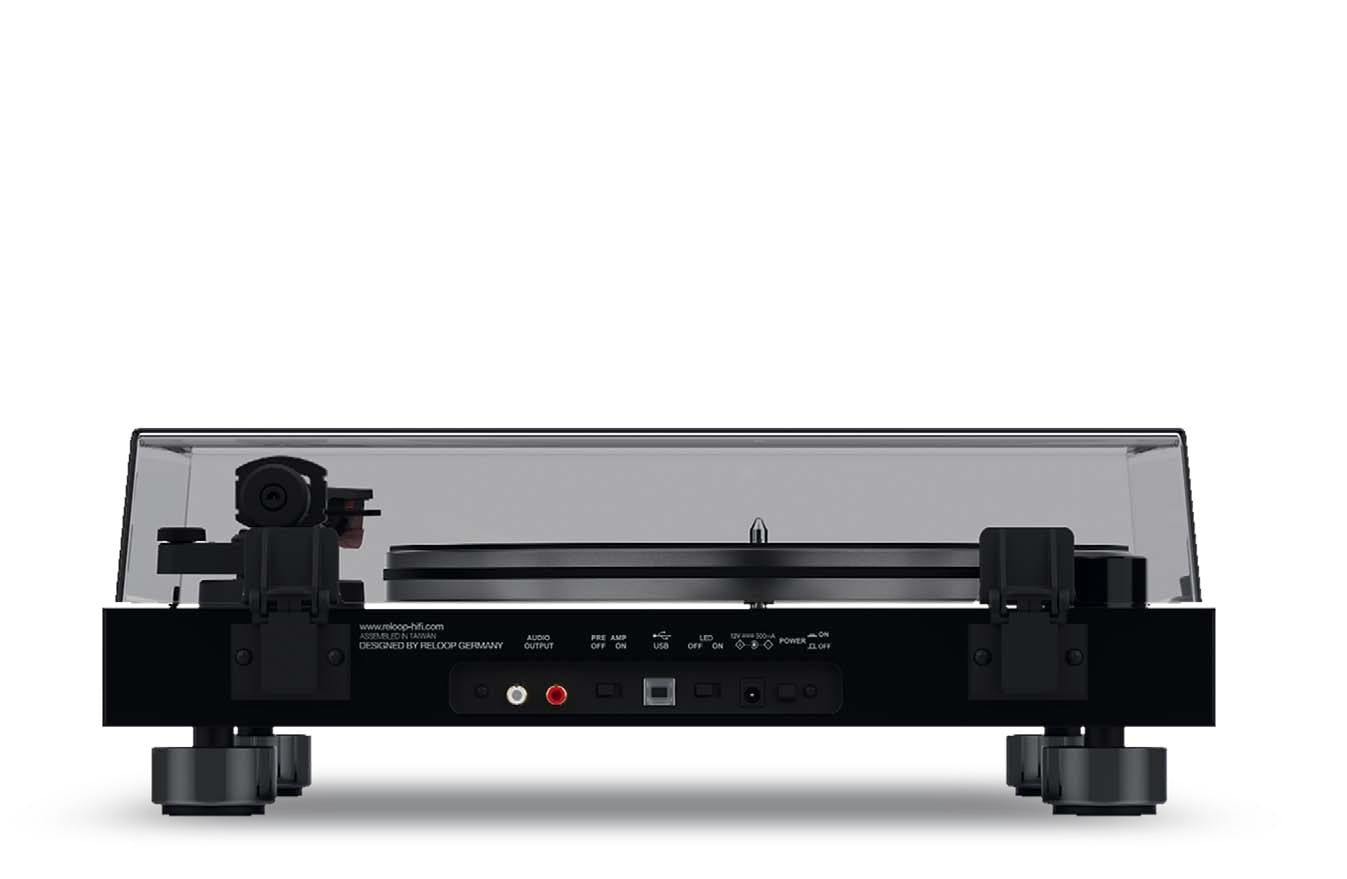
Build & Design
Vinyl beginners get an all-inclusive package here, namely an 8-kilogram, beautifully designed, fully manual belt-drive turntable with a tonearm and pre-installed Ortofon cartridge. Getting the setup running essentially involves setting the tracking force on the counterweight of the tonearm. A task that, with the help of a detailed user manual, is far from complicated.
Full-featured equipment
Let’s imagine a curious newcomer. Someone who might already have an amplifier and a modern all-in-one system or some “sound system” at home. In our experience, as soon as the question of a “phono” input comes up, it’s game over. Thoughtfully, Reloop has likely considered this and equipped the Turn 7 with two decisive features: a built-in phono preamp and an A/D converter that outputs the signal via a USB interface. The vinyl newcomer is thereby free of all connection worries and can start immediately, either analog via the “aux” input of any system or directly through the computer.
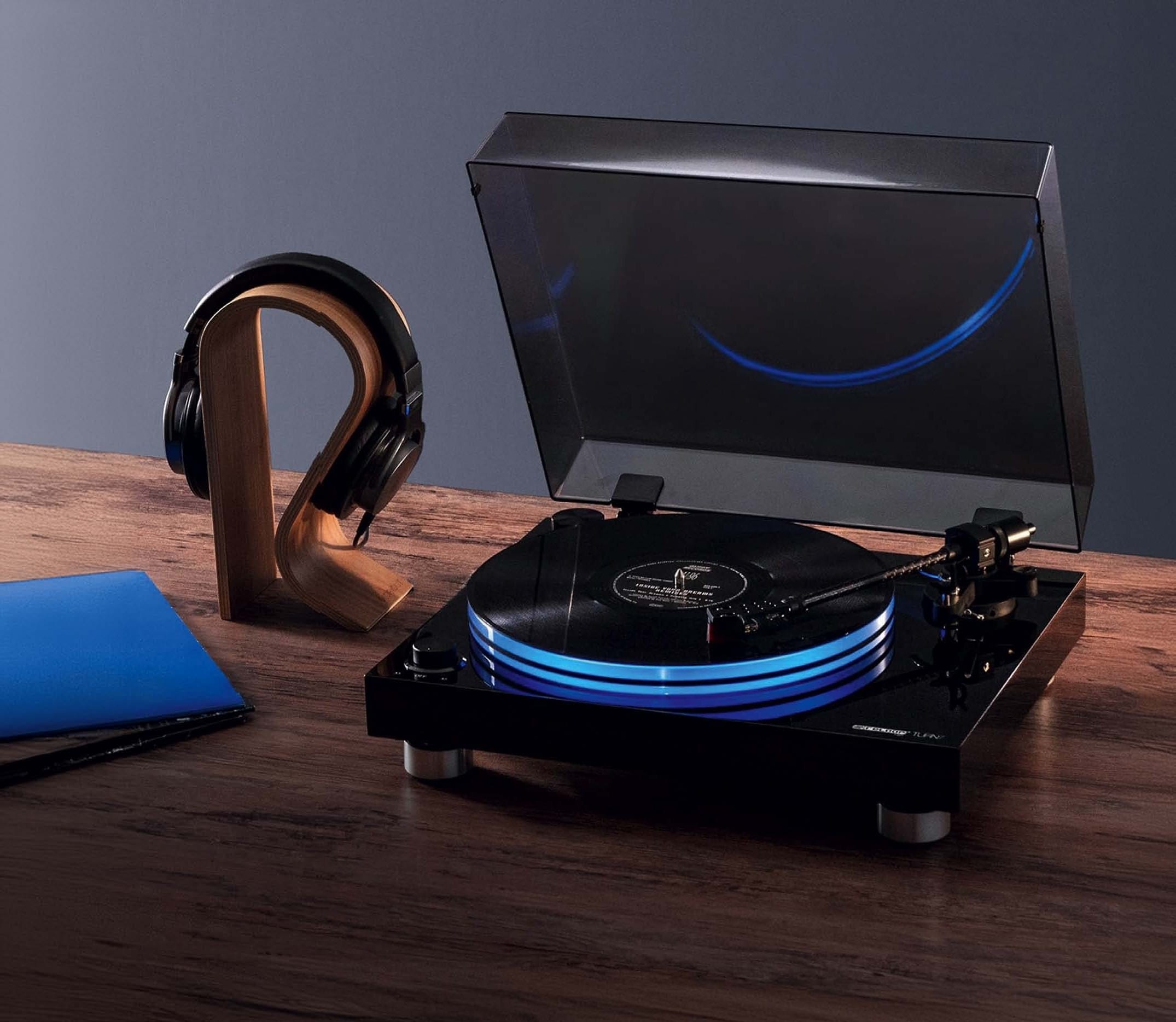
For those who prefer to use external phono preamps, you’re also in luck: via a switch, the output jacks can also deliver the direct signal from the pre-installed MM cartridge, the Ortofon 2M Red, which is known as a reliable, uncomplicated sound system with an excellent price-performance ratio among budget cartridges.
Reliable foundation: MDF chassis
The basis of the Turn 7 is a solid MDF chassis with four height-adjustable feet. The electronics and drive motor are hidden inside the glossy block, ensuring smooth operation.
The platter bearing is also hidden, with only the spindle and a tapered shaft for mounting the platter protruding. The conical mounting and its bushing counterpart in the acrylic platter ensure precision in rotation and a secure fit of the platter on the spindle. Older vinyl enthusiasts may remember that this used to be quasi-standard on high-quality turntables before cost-cutting measures took their toll.
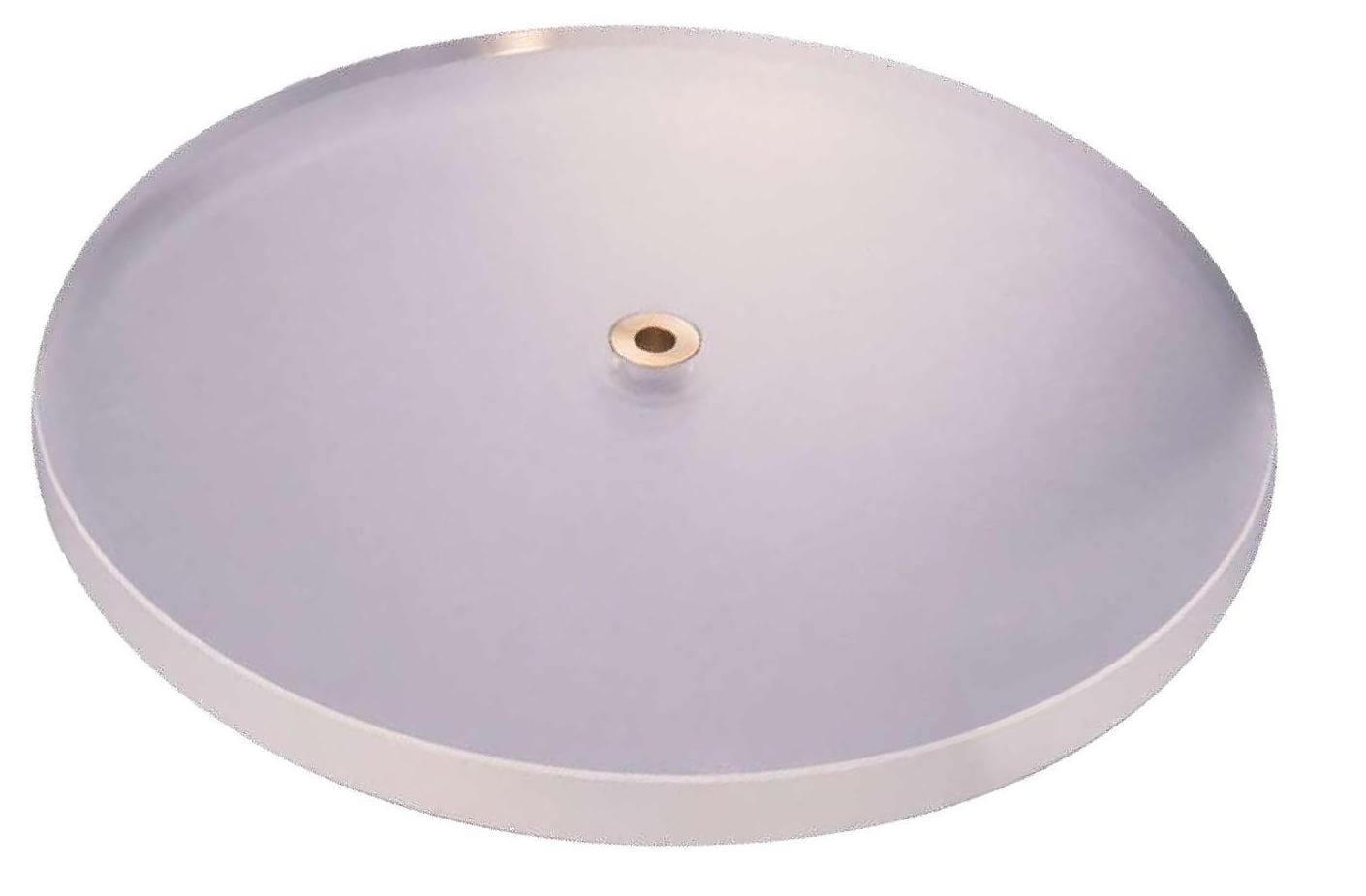
The platter itself weighs about 1.7 kilograms and is 20 millimeters thick, a middle ground between the “beliefs” of heavy and light platters. It doesn’t have a label recess, and the manufacturer mentions that a platter mat isn’t necessary. Still, the package includes a black felt mat, so using it is a matter of taste.
Around the bearing area in the chassis is a kind of “light ring” made of blue LEDs, which shows up as a diffuse blue glow over the matte acrylic platter. Also switchable, if desired. But we have to admit: we liked it.
The acrylic platter with blue LED lighting is a real eye-catcher, but still subtle.
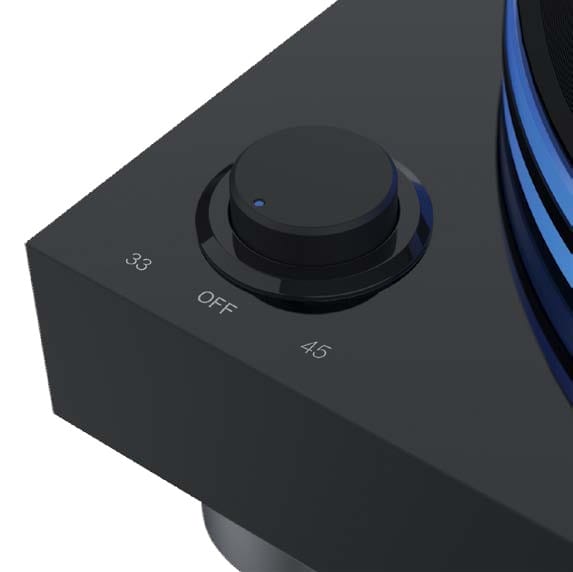
Belt Drive
The Turn 7’s belt drive hints slightly at its professional heritage. It’s surprisingly powerful and brings the platter to its full speed in just a fraction of a second. It also supports 45 RPM. Among the included accessories, there’s even the “puck” for singles, often a mystery for vinyl beginners who might initially stumble upon audiophile LPs with 45 RPM specifications.
Equipped for all eventualities, those familiar with the subject will be surprised that the drive motor is not a synchronous motor, but a DC motor, meaning there must also be a corresponding power supply inside the chassis. The platter is driven via a flat belt that runs along the edge of the platter; this setup operates silently and smoothly.
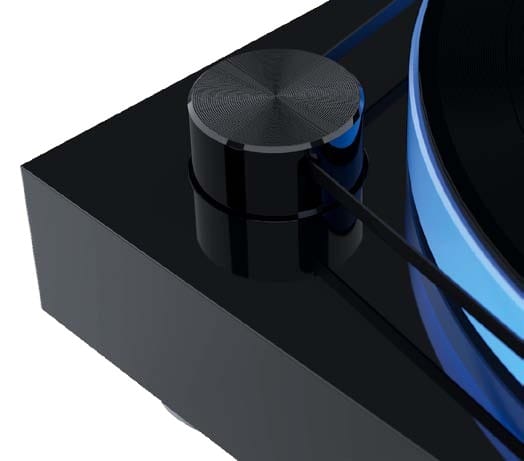
The Plexiglas dust cover is, of course, intended as dust protection, but as is well-known, it’s acoustically counterproductive, as it picks up vibrations through the air. The rule of thumb: it’s better to operate the turntable without the cover, dust it carefully, and regularly clean the drive belt. This brings us to the tonearm, which should ideally be dusted gently with a brush.
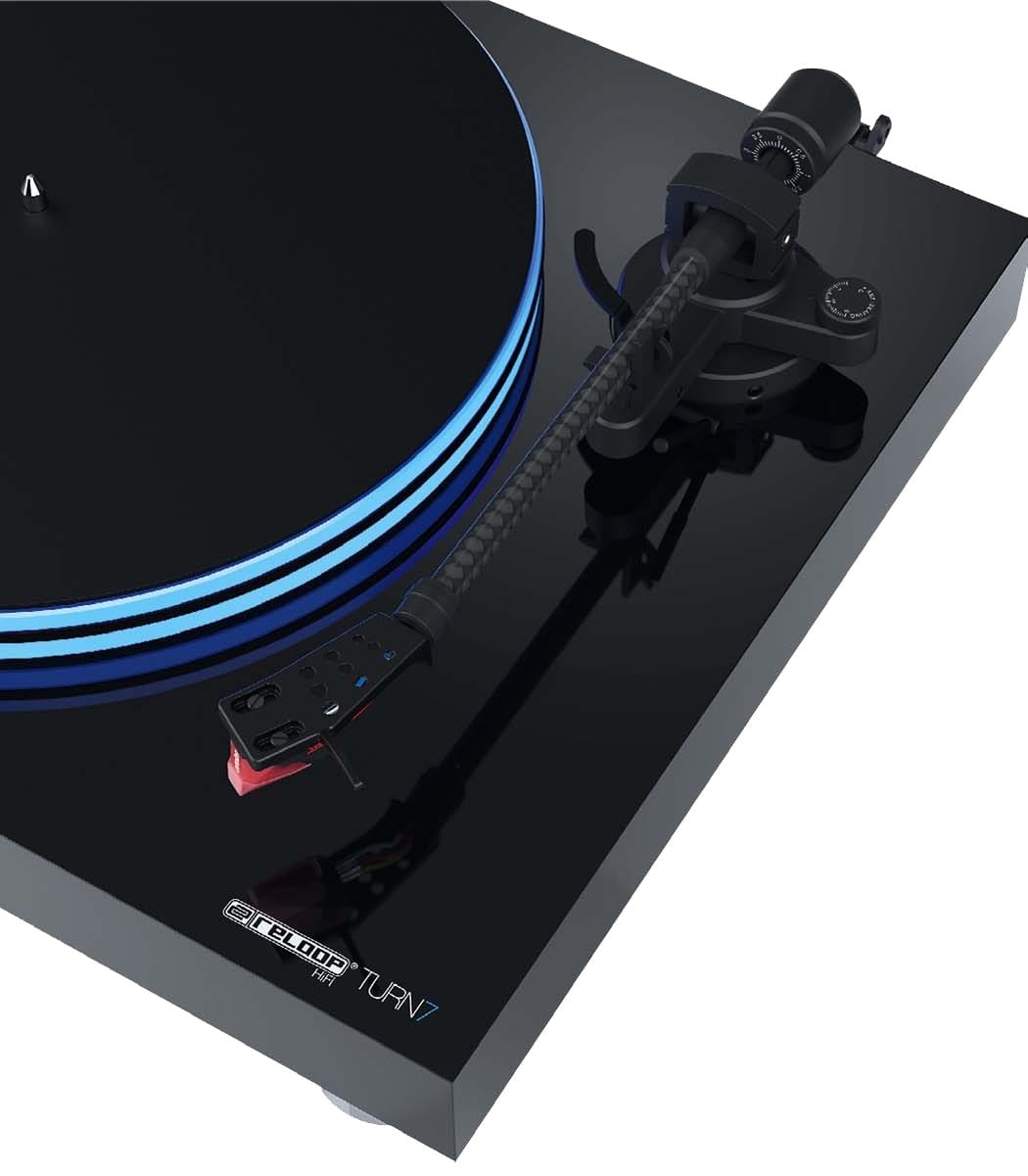
Straight tonearm
The Reloop Turn 7 features an adjustable-height straight tonearm with a carbon tube, a bent head-shell with an SME bayonet, and an anti-skating device marked with a scale. The effective mass of the tonearm is stated to be 18.5 grams. The tracking force is set using a rotatable counterweight, which is also marked with a scale; according to the manual, no tonearm scale is necessary. The relatively lightweight tonearm is equipped with a smoothly operating lift and has a holder with a clamping device.
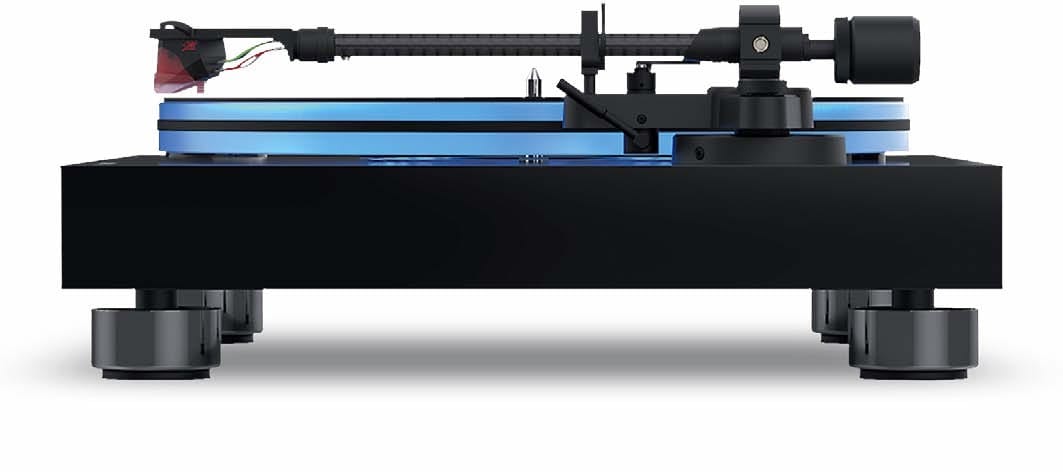
Ortofon Classic
There isn’t much left to say about the Ortofon 2M Red, a cartridge widely known and tested in the vinyl scene, with a solid reputation. For its price, it’s a small MM marvel, not particularly sensitive to tracking force (optimal 18 mN), robust and long-lasting. Undoubtedly a good choice by Reloop HiFi, delivering a sound that’s slightly warm, with convincing bass and a lot of joy in playing. There’s not much that can go wrong, provided the turntable base is solid. And it is.
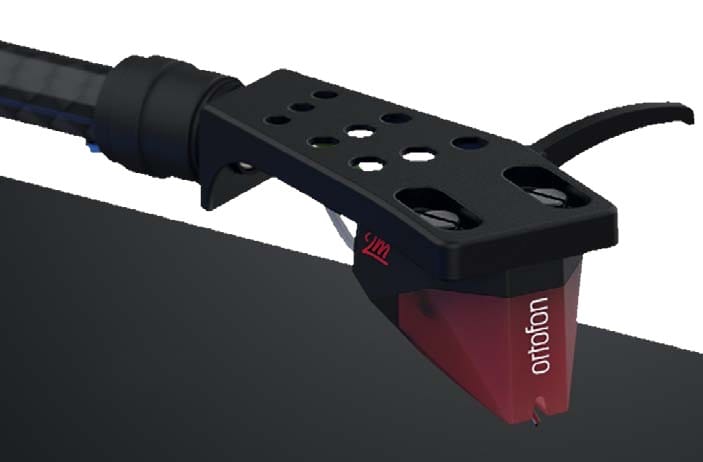
As is often the case, it’s not the summation of capabilities, not the peak performance in specific areas, that determines success or failure, but the overall picture. And that is defined by the mistakes the Turn 7 simply doesn’t make. Because it doesn’t try to venture into territories where big game roams. In other words: what it does, it does perfectly and without fault. The result is coherent, convincing, and balanced. And overall, the listening pleasure is far beyond what its price range would suggest. The conclusion is clear: it’s better to spend any extra money on a large vinyl collection rather than on high-tech upgrades.
If your sonic expectations rise once you’ve caught the vinyl bug, the next logical step would be to get an external phono preamp, although the built-in RIAA equalizer is far from bad. And the USB output? It’s great for recording. But one thing should be clear: the Turn 7 is far too good for a pair of tiny computer speakers. Our advice: pair it with a solid integrated amplifier and maybe some speakers from the same price range as the Reloop Turn 7.
Performance measurement
Drive noise: with a record (red) and a phono preamp, a decent rumble value of 71 dB (maximum possible 74 dB). During the rumble measurement with a coupler, 50 Hz hum and individual hum peaks from the motor are noticeable (blue). Without a preamp, there is increased hum from the power supply, and the rumble value with a record drops to 66 dB. Very good speed stability (0.07% IEC-386, 2-Sigma), but increased absolute speed (+1.5%). The phono preamp is tuned with 35 dB gain for loud MM/MI systems.
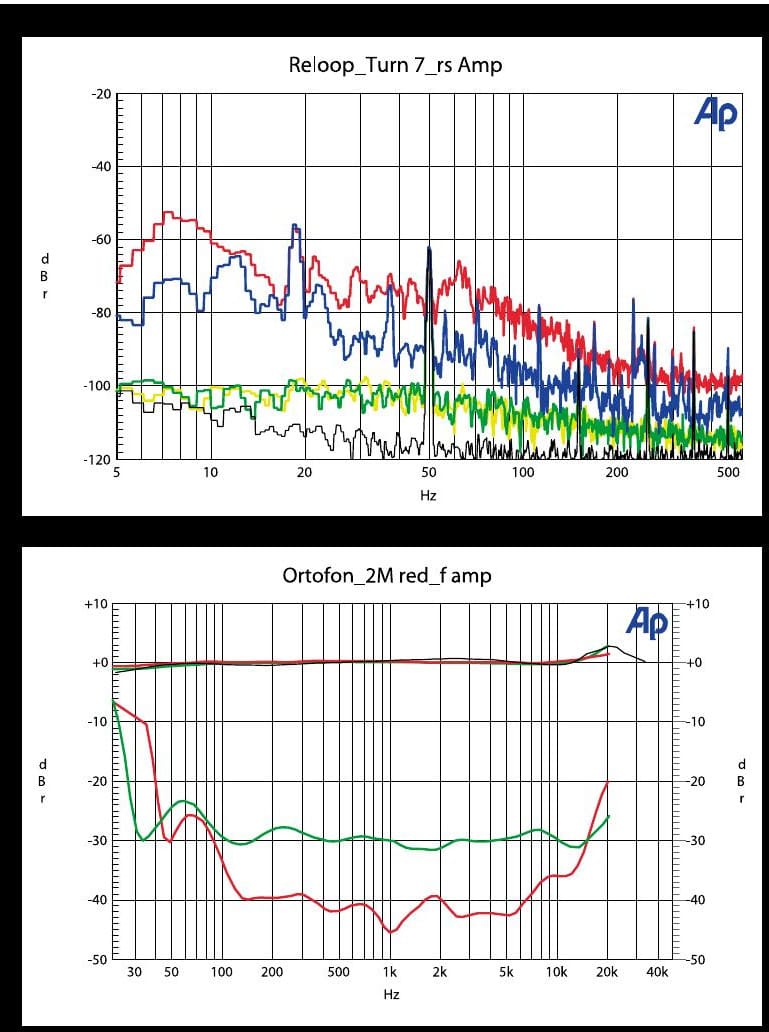
Combined with the 2M Red, it results in a flat frequency response. The USB digitization function works flawlessly, though very loud passages distort slightly. The data stream reaches the computer at a maximum of 48 kHz/16-bit.
Specs
- Manufacturer: Reloop HiFi
- Model: Turn 7
- Distribution: Reloop HiFi
- Website: reloop-hifi.com
- Warranty: 2 years
- Dimensions (W × H × D): 42.0 × 14.8 × 35.6 cm
- Weight: 8.2 kg
- Drive: Belt
- Speeds: 33 & 45 RPM
- Speed Selector: Yes
- Tonearm Height Adjustment: Yes
- Adjustable Feet: Yes
- Pitch Control: No
- Fully Automatic/Auto-Stop: No / No
- Special Features: Built-in phono preamp, USB
CONCLUSION
An all-inclusive package where the sound is right. And if you want to showcase this beauty effectively, Reloop HiFi has the right accessory for that as well. There’s a small piece of furniture, the Turntable Lowboard – affordable and stylish in that 60s vibe.
Sound (Cinch / XLR): 134 points
Features: Outstanding
Operation: Very good
Build Quality: Very good
When you purchase through links on our site, I may earn an affiliate commission. Here’s how it works.
Reloop HiFi: Turn 7 - Premium Belt Drive USB Turntable System (Introduction)
We are happy to introduce the Reloop Turn 7 - a premium belt drive USB turntable system that bridges the gap between high-end ...

